Tags: COVID-19 vaccine

COVID-19 Pandemic Might Not End For Immunocompromised People; Here’s Why

FDA Delays Approval of Pfizer COVID-19 Vaccine For Kids Under 5 Years Old [Explainer]

COVID-19 Vaccination During Pregnancy May Protect Infants Due to Antibodies Produced at Prenatal Period

Severity of COVID-19 Infection Lower in Fully Vaccinated Population

Heart Transplant Denied to 31-Year-Old Patient Who Refused to Receive COVID-19 Vaccine

COVID-19 Vaccines Do NOT Impact Fertility in Both Partners

CORBEVAX COVID-19 Vaccine: Will This Cheap, Effective, Patent-Free Jab Help Put an End to the Pandemic?

New Data Shows COVID-19 Vaccine Booster Shots Against Omicron Lasts Less Than Six Months, Effectivity Wanes Over Time

Fourth Dose of Pfizer-BioNTech Vaccine Only Gives Partial Defense Against Omicron, Israeli Study Suggests

Here's Why Women's Menstrual Cycle Is Slightly Adjusted After Receiving a Dose of COVID-19 Vaccine

Is a Fourth COVID-19 Vaccine Dose Needed? Experts Assess Effectiveness of Booster Shots Amid Rising Omicron Cases
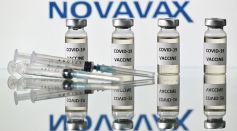
A 5th COVID-19 Shot Soon? Here’s an Update on the EU-Approved Novavax Vaccine

COVID-19 Booster Shots: Is Your Choice of Vaccine Important? Does It Make a Difference? Experts Explain
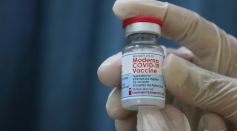
Moderna, Pfizer, Other Vaccine Makers Currently Testing Their COVID-19 Vaccines Against the New Omicron Variant
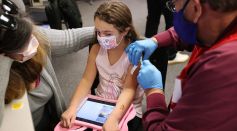
COVID-19 Vaccination Program for Children: 5-11-Year-Old Kids Can Now Get Their Shot; What Do Parents Need to Know?

COVID-19 Vaccine New Formulation Now Easier to Produce, Refrigeration Not Necessary
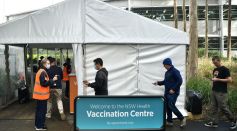
Why Does Each Age Groups Receive Different Vaccine Doses?

Moderna, Johnson & Johnsons to Offer Booster Shots; What Should We Know About These COVID-19 Vaccines?
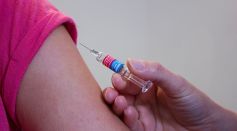
Is COVID-19 Vaccine Safe for Kids? Children Who Accidentally Received Doses Suffer Hypertension, Heart Issues, Other Side Effects

New Zealand Among The First Countries to Acquire COVID-19 Antiviral Treatment Molnupiravir That Helps Reduce Hospitalizations
Most Popular

Persistent Coughs Are Everywhere: Here's What Experts Think Is Causing It

Ancient Hotspot Found to Have Created Great Lakes 300 Million Years Ago

Mysterious Structures Discovered Beneath the Pacific Ocean, Puzzle Scientists

Health Benefits of Drinking Hot Chocolate





